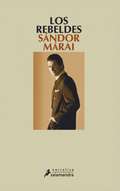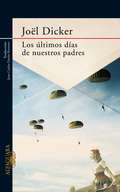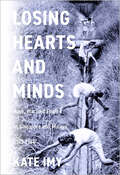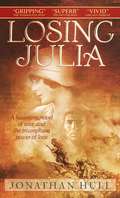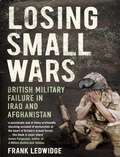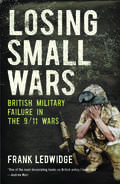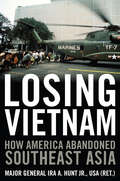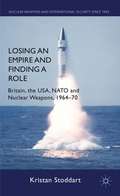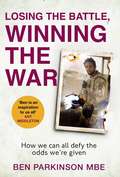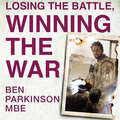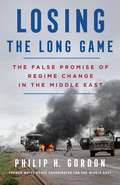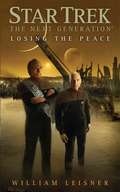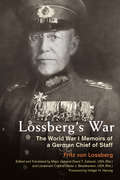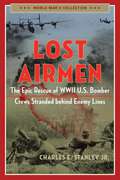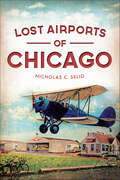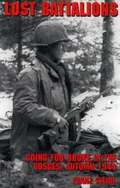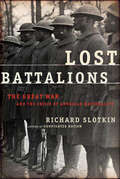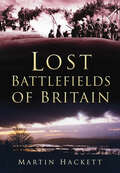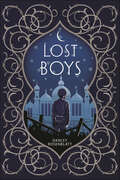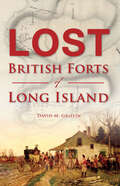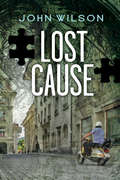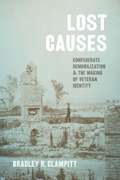- Table View
- List View
Los rebeldes (Ciclo de los Garren #Volumen 1)
by Sándor MáraiSándor Márai publicó esta novela cuando tenía treinta años y acababa de regresar a Hungría. Aunque ya era conocido como escritor de talento, Los rebeldes causó un gran impacto y acabó de consagrar a su autor, que iniciaba entonces uno de sus períodos creativos más intensos y fecundos. Apenas unos meses antes del final de la Primera Guerra Mundial, cuatro jóvenes acaban sus estudios y se enfrentan al último verano de la adolescencia. En cuestión de semanas serán llamados a filas y enviados al frente, un frente del cual solo llegan noticias nefastas. Así, unidos por su aversión a lo que promete ofrecerles la madurez, Tibor, Ábel, Erno y Béla crean un universo particular y juegan a desafiar todas las reglas: beben y fuman en exceso, juegan a las cartas, se inventan extravagantes historias, cometen pequeños hurtos... Ante la ausencia de padres, tíos y hermanos mayores, realizan su propio aprendizajede la vida libres del control familiar, hasta que la aparición de un improvisado mentor, un avieso actor que está de paso en la ciudad, hará que sus juegos, y sus vidas, se precipiten por caminos insospechados que los llevarán hacia un dramático desenlace.
Los siete pilares de la sabiduría
by T.E. Lawrence (Lawrence de Arabia)La crónica personal de un aventurero de comienzos del siglo XX, T. E. Lawrence: un miembro del Gobierno británico que termina convirtiéndose en un héroe de la resistencia árabe. En los preludios de la Primera Guerra Mundial, en pleno apogeo del colonialismo europeo, un agente del Gobierno británico se interna en la península arábiga con la finalidad de subyugar una inminente rebelión anticolonial. El emisario es cuestión recorre, bajo un sol abrasador, amplias regiones desérticas. Trata con los enemigos del Imperio Británico, conoce sus constumbres y se gana su confianza. Se convierte en uno de ellos... y actúa de forma subrepticia a favor de los intereses de la metrópli, aunque le repugna tanto ejercer ese papel que acaba simpatizando con la causa árabe.
Los siete pilares de la sabiduría
by T.e. Lawrence de ArabiaEsta es la crónica personal de un aventurero de comienzos del siglo XX, T. E. Lawrence: un lacayo del Gobierno británico que termina convirtiéndose en un héroe de la resistencia árabe. En los preludios de la Primera Guerra Mundial, en pleno apogeo del colonialismo europeo, un agente del Gobierno británico se interna en la península Arábiga con la finalidad de yugular una inminente rebelión anticolonial. El emisario es cuestión recorre, bajo un sol abrasador, amplias regiones desérticas. Trata con los enemigos del Imperio Británico, conoce sus constumbres y se gana su confianza. Se convierte en uno de ellos... y actúa de forma subrepticia a favor de los intereses de la metrópli, aunque le repugna tanto ejercer ese papel que acaba simpatizando con la causa árabe.
Los ultimos dias de nuestros padres
by Joël DickerLa primera novela del «fenómeno planetario» (Babelia) Joël Dicker, «el suizo que resucita las librerías» (El País Semanal), el «irritante niño prodigio literario» (The New York Times), ganadora del Premio de los Escritores Ginebrinos. En 1940 Winston Churchill tiene una idea que cambiará el curso de la guerra: crear una nueva sección de los servicios secretos, el Special Operations Executive (SOE), para llevar a cabo acciones de sabotaje desde el interior de las líneas enemigas. Unos meses más tarde, el joven Paul-Émile deja París rumbo a Londres con la esperanza de unirse a la Resistencia. El SOE no tarda en llamarlo a sus filas, junto a un grupo de jóvenes compañeros. Tras un entrenamiento brutal, los pocos elegidos conocerán el amor, el miedo y la amistad, y serán enviados en misión a la Francia ocupada. Pero el contraespionaje alemán ya ha sido alertado. Un jovencísimo Joël Dicker, que luego deslumbrará a más de dos millones de lectores con La verdad sobre el caso Harry Quebert, aborda un hecho de la Segunda Guerra Mundial que fue mantenido en secreto durante años, y demuestra, en esta novela ganadora del Premio de los Escritores Ginebrinos, su talento para crear una historia y unos personajes inolvidables. Reseña:«Una lectura envolvente. Dicker no solo demuestra conocer a fondo el tema sino que se compromete con los personajes, se vuelve lírico. Transmite con fuerza el poder reconfortante de ese "nosotros" que surge en las horas críticas de la historia.»Emmanuel Gehrig, Le Temps Reseñas a La verdad sobre el caso Harry Quebert:«Como si Norman Mailer hubiera sido acusado de asesinato y Truman Capote hubiera colaborado para contarlo todo... Pero sospecho que Dicker es más divertido.»Chelsea Cain, The New York Times «Estamos ante el gran thriller que todo el mundo esperaba desde Millenium de Larsson, ante una voz napoleónica, que no escribe, boxea... Una novela que no es una novela, es una batalla. Como todo gran libro que se precie.»Laura Fernández, El Cultural de El Mundo «Llega el fenómeno Dicker... El sucesor de Stieg Larsson y E.L. James... Entretenimiento en vena... Terriblemente adictivo.»Antonio Lozano, La Vanguardia «Si usted mete las narices en esta gran novela, está perdido: tendrá que seguir hasta el final. Se sentirá manipulado, desorientado, asombrado, irritado y apasionado por una historia con muchas sorpresas y falsas pistas.»Bernard Pivot (de la Academia Goncourt), Le Journal du dimanche
Losing Hearts and Minds: Race, War, and Empire in Singapore and Malaya, 1915–1960 (Stanford British Histories)
by Kate ImyLosing Hearts and Minds explores the loss of British power and prestige in colonial Singapore and Malaya from the First World War to the Malayan Emergency. During this period, British leaders relied on a growing number of Asian, European and Eurasian allies and servicepeople, including servants, police, soldiers, and medical professionals, to maintain their empire. At the same time, British institutions and leaders continued to use racial and gender violence to wage war. As a result, those colonial subjects closest to British power frequently experienced the limits of belonging and the broken promises of imperial inclusion, hastening the end of British rule in Southeast Asia. From the World Wars to the Cold War, European, Indigenous, Chinese, Malay, and Indian civilians resisted or collaborated with British and Commonwealth soldiers, rebellious Indian troops, invading Japanese combatants, and communists. Historian Kate Imy tells the story of how Singapore and Malaya became sites of some of the most impactful military and anti-colonial conflicts of the twentieth century, where British military leaders repeatedly tried—but largely failed—to win the "hearts and minds" of colonial subjects.
Losing Julia
by Jonathan HullFROM THE BACK COVER: Patrick Delaney was just a boy when he marched off to war in 1918. But on the stark battlefields of France, amid the horror and the chaos, Patrick forged a bond that would shape the course of his life. Daniel was Patrick's best friend, his comrade in arms. But it was Daniel's lover, Julia, who would change Patrick forever. Julia's letters, shared by Daniel in the muddy trenches, touched Patrick in ways he never could have expected. But years would pass before he finally met her at a war memorial in France. There on a field still scarred by battle, Patrick closed his eyes in silent prayer and opened them to the woman he had never seen but always love, Julia. After a brief, passionate encounter. Patrick made a fateful choice and Julia slipped away, perhaps never to return. It is just the beginning of an astonishing story that will span almost a century. A story of memory and desire, history and destiny and of the people who slip from our grasp. Only to hold us forever.
Losing Small Wars: British Military Failure in Iraq and Afghanistan
by Frank LedwidgePartly on the strength of their apparent success in insurgencies such as Malaya and Northern Ireland, the British armed forces have long been perceived as world class, if not world beating. However, their recent performance in Iraq and Afghanistan is widely seen as--at best--disappointing; under British control Basra degenerated into a lawless city riven with internecine violence, while tactical mistakes and strategic incompetence in Helmand Province resulted in heavy civilian and military casualties and a climate of violence and insecurity. In both cases the British were eventually and humiliatingly bailed out by the US army. In this thoughtful and compellingly readable book, Frank Ledwidge examines the British involvement in Iraq and Afghanistan, asking how and why it went so wrong. With the aid of copious research, interviews with senior officers, and his own personal experiences, he looks in detail at the failures of strategic thinking and culture that led to defeat in Britain's latest "small wars. " This is an eye-opening analysis of the causes of military failure, and its enormous costs.
Losing Small Wars: British Military Failure in the 9/11 Wars
by Frank LedwidgePartly on the strength of their apparent success in insurgencies such as Malaya and Northern Ireland, the British armed forces have long been perceived as world class, if not world beating. However, their recent performance in Iraq and Afghanistan is widely seen as--at best--disappointing; under British control Basra degenerated into a lawless city riven with internecine violence, while tactical mistakes and strategic incompetence in Helmand Province resulted in heavy civilian and military casualties and a climate of violence and insecurity. In both cases the British were eventually and humiliatingly bailed out by the US army. In this thoughtful and compellingly readable book, Frank Ledwidge examines the British involvement in Iraq and Afghanistan, asking how and why it went so wrong. With the aid of copious research, interviews with senior officers, and his own personal experiences, he looks in detail at the failures of strategic thinking and culture that led to defeat in Britain's latest "small wars. " This is an eye-opening analysis of the causes of military failure, and its enormous costs.
Losing Vietnam: How America Abandoned Southeast Asia (Battles and Campaigns)
by Major General Ira A. Hunt Jr.An intelligence officer stationed in Southeast Asia offers a &“detailed, insightful, documented, and authentic account&” of US policy failure in the region (Lewis Sorley, author of Westmoreland). In the early 1970s, the United States began to withdraw combat forces from Southeast Asia. Though the American government promised to support the South Vietnamese and Cambodian forces in their continued fight against the Viet Cong, the funding was drastically reduced over time. The strain on America&’s allies in the region was immense, as Major General Ira Hunt demonstrates in Losing Vietnam. As deputy commander of the United States Support Activities Group Headquarters (USAAG) in Nakhon Phanom, Thailand, Hunt received all Southeast Asia operational reports, reconnaissance information, and electronic intercepts, placing him at the forefront of military intelligence and analysis in the area. He also met frequently with senior military leaders of Cambodia and South Vietnam, contacts who shared their insights and gave him personal accounts of the ground wars raging in the region. In Losing Vietnam, Major Hunt details the catastrophic effects of reduced funding and of conducting "wars by budget." This detailed and fascinating work highlights how analytical studies provided to commanders and staff agencies improved decision making in military operations. By assessing allied capabilities and the strength of enemy operations, Hunt effectively demonstrates that America's lack of financial support and resolve doomed Cambodia and South Vietnam to defeat.
Losing an Empire and Finding a Role
by Kristan StoddartThis book sheds fresh light on developments in British nuclear weapons policy between October 1964, when the Labour Party came back into power under Harold Wilson following a thirteen year absence, and June 1970 when the Conservative government of Edward Heath was elected.
Losing the Battle, Winning the War: How we can all defy the odds we're given
by Ben Parkinson'A great and inspiring book from Doncaster's bravest son. Read it in a day' - Jeremy Clarkson 'Ben is the embodiment of positive thinking. What he has achieved, in large part through willpower, is nothing short of miraculous. An inspiration to us all' - Ant Middleton The story of Ben Parkinson MBE, the most injured soldier to have survived Afghanistan---What were you doing when you were 22? Where were you in the world? What did you want to do with your life? Ben Parkinson was a 6'4" Paratrooper. He was in Afghanistan fighting for his country. He wanted to always be a soldier, to be a father and to get home in one piece. But we don't always get what we want. So the question is: how do we react when that happens? Easy: You find something new to fight for.Ben Parkinson MBE is an inspiration to everyone. He suffered 37 injuries when his Land Rover hit a mine in Helmand in 2006, including brain damage, breaking his back and losing both his legs. This book follows the story of what led him to that moment his life changed forever - and what happened next. Doctors didn't think Ben could survive the trauma - then they didn't think he would wake up, or talk again, or walk again. Time after time, Ben pushed the ceiling on what was possible, going on to carry the Olympic flame in 2012 and receiving an MBE for the enormous feats he has undertaken for charity.What he has achieved in the face of adversity - for others as well as for himself - is nothing short of a miracle. Nerve-wracking, heart-warming and full of classic soldier's humour, Losing the Battle, Winning the War is a book you'll be thinking about long after the last page. 'Ben Parkinson is my hero. His story is one of immeasurable courage and character, a testament to the extraordinary resilience of the human spirit' Dan Jarvis MP, author of Long Way Home
Losing the Battle, Winning the War: How we can all defy the odds we're given
by Ben Parkinson'Ben is the embodiment of positive thinking. What he has achieved, in large part through willpower, is nothing short of miraculous. An inspiration to us all' - Ant Middleton 'A great and inspiring book from Doncaster's bravest son. Read it in a day' - Jeremy Clarkson The story of Ben Parkinson MBE, the most injured soldier to have survived Afghanistan---What were you doing when you were 22? Where were you in the world? What did you want to do with your life? Ben Parkinson was a 6'4" Paratrooper. He was in Afghanistan fighting for his country. He wanted to always be a soldier, to be a father and to get home in one piece. But we don't always get what we want. So the question is: how do we react when that happens? Easy: You find something new to fight for.Ben Parkinson MBE is an inspiration to everyone. He suffered 37 injuries when his Land Rover hit a mine in Helmand in 2006, including brain damage, breaking his back and losing both his legs. This book follows the story of what led him to that moment his life changed forever - and what happened next. Doctors didn't think Ben could survive the trauma - then they didn't think he would wake up, or talk again, or walk again. Time after time, Ben pushed the ceiling on what was possible, going on to carry the Olympic flame in 2012 and receiving an MBE for the enormous feats he has undertaken for charity.What he has achieved in the face of adversity - for others as well as for himself - is nothing short of a miracle. Nerve-wracking, heart-warming and full of classic soldier's humour, Losing the Battle, Winning the War is a book you'll be thinking about long after the last page.
Losing the Battle, Winning the War: The story of the most injured soldier to have survived Afghanistan
by Ben Parkinson'A great and inspiring book from Doncaster's bravest son. Read it in a day' - Jeremy Clarkson 'Ben is the embodiment of positive thinking. What he has achieved, in large part through willpower, is nothing short of miraculous. An inspiration to us all' - Ant Middleton The story of Ben Parkinson MBE, the most injured soldier to have survived Afghanistan---What were you doing when you were 22? Where were you in the world? What did you want to do with your life? Ben Parkinson was a 6'4" Paratrooper. He was in Afghanistan fighting for his country. He wanted to always be a soldier, to be a father and to get home in one piece. But we don't always get what we want. So the question is: how do we react when that happens? Easy: You find something new to fight for.Ben Parkinson MBE is an inspiration to everyone. He suffered 37 injuries when his Land Rover hit a mine in Helmand in 2006, including brain damage, breaking his back and losing both his legs. This book follows the story of what led him to that moment his life changed forever - and what happened next. Doctors didn't think Ben could survive the trauma - then they didn't think he would wake up, or talk again, or walk again. Time after time, Ben pushed the ceiling on what was possible, going on to carry the Olympic flame in 2012 and receiving an MBE for the enormous feats he has undertaken for charity.What he has achieved in the face of adversity - for others as well as for himself - is nothing short of a miracle. Nerve-wracking, heart-warming and full of classic soldier's humour, Losing the Battle, Winning the War is a book you'll be thinking about long after the last page. 'Ben Parkinson is my hero. His story is one of immeasurable courage and character, a testament to the extraordinary resilience of the human spirit' Dan Jarvis MP, author of Long Way Home
Losing the Long Game: The False Promise of Regime Change in the Middle East
by Philip H. GordonThe definitive account of how regime change in the Middle East has proven so tempting to American policymakers for decades—and why it always seems to go wrong."Must reading—by someone who saw it first-hand—for all interested in America’s foreign policy and its place in the world.”—Robin Wright Since the end of World War II, the United States has set out to oust governments in the Middle East on an average of once per decade—in places as diverse as Iran, Iraq, Afghanistan (twice), Egypt, Libya, and Syria. The reasons for these interventions have also been extremely diverse, and the methods by which the United States pursued regime change have likewise been highly varied, ranging from diplomatic pressure alone to outright military invasion and occupation. What is common to all the operations, however, is that they failed to achieve their ultimate goals, produced a range of unintended and even catastrophic consequences, carried heavy financial and human costs, and in many cases left the countries in question worse off than they were before.Philip H. Gordon's Losing the Long Game is a thorough and riveting look at the U.S. experience with regime change over the past seventy years, and an insider’s view on U.S. policymaking in the region at the highest levels. It is the story of repeated U.S. interventions in the region that always started out with high hopes and often the best of intentions, but never turned out well. No future discussion of U.S. policy in the Middle East will be complete without taking into account the lessons of the past, especially at a time of intense domestic polarization and reckoning with America's standing in world.
Losing the Peace (Star Trek: The Next Generation)
by William LeisnerContinuing the events detailed in Star Trek: Destiny: With the displacement and devastation wrought by the Borg, can the Federation survive?Fortune has smiled on Lieutenant Jasminder Choudhury, chief of security on the USS Enterprise. She has survived. But her homeworld, Deneva, one of the planets targeted in the massive Borg invasion, has not. The entire surface has been wiped clean of everything, killing anyone who did not evacuate and rendering the planet uninhabitable. Choudhury is left to wonder whether her family was one of the displaced. Or are they all gone forever? The Enterprise is just one ship, and Jasminder Choudhury is just one officer, yet her story is being repeated over and over across the galaxy. Hundreds of thousands of displaced persons haunt the space ways, seeking comfort, looking for someplace safe, somewhere, anywhere to find solace. Captain Jean-Luc Picard is ordered to do everything he can to rescue and if need be to recover the lost souls from the Borg invasion. For the first time in generations, citizens of the Federation know want, uncertainty, and fear. Bloodied yet unbowed, the Federation now stands on the edge of a precipice. The captain of the Enterprise finds himself in the unenviable position of wondering whether it is true that those who can win a war well can rarely make a good peace.
Lossberg's War: The World War I Memoirs of a German Chief of Staff (Foreign Military Studies)
by Fritz von Lossberg&“This book is a work of detail and scholars can now envision the campaigns and battles of the First World War from a high-level German perspective.&” —Journal of Military History Gen. Fritz von Lossberg (1868-1942) directed virtually all the major German defensive battles on the Western Front during the First World War. Hailed as &“the Lion of the Defensive,&” he was an extremely influential military tactician and, unlike many other operations officers of his era, was quick to grasp the changes wrought by technology. Now available for the first time in English, Lossberg&’s memoir explains how he developed, tested, and implemented his central principles—flexibility, decentralized control, and counterattack—which were based on a need to adapt to shifting conditions on the battlefield. Lossberg first put his theory of elastic defense combined with defense-in-depth into practice during the Battle of Arras (April-May 1917), where it succeeded. At the Battle of Passchendaele (June-November 1917), his achievements on the field proved the feasibility of his strategy of employing a thinly manned front line that minimized the number of soldiers exposed to artillery fire. Lossberg&’s tactical modernizations have become essential components of army doctrine, and Lossberg&’s War: The World War I Memoirs of a German Chief of Staff will take readers inside the mind of one of the most significant military innovators of the twentieth century. &“Make no mistake about it, the appearance of this book is one of the most significant Great War publishing events of the year. It deserves to be on the shelf of every serious student of this titanic conflict.&” —Stand To!
Lost Airmen: The Epic Rescue of WWII U.S. Bomber Crews Stranded Behind Enemy Lines
by Charles E. Stanley Jr.Late in 1944, thirteen U.S. B-24 bomber crews bailed from their cabins over the Yugoslavian wilderness. Bloodied and disoriented after a harrowing strike against the Third Reich, the pilots took refugee with the Partisan underground. But the Americans were far from safety. Holed up in a village barely able to feed its citizens, encircled by Nazis, and left abandoned after a team of British secret agents failed to secure their escape, the airmen were left with little choice. It was either flee or be killed. In The Lost Airmen, Charles Stanely Jr. unveils the shocking true story of his father, Charles Stanely-and the eighteen brave soldiers he journeyed with for the first time. Drawing on over twenty years of research, dozens of interviews, and previously unpublished letters, diaries, and memoirs written by the airmen, Stanley recounts the deadly journey across the blizzard-swept Dinaric Alps during the worst winter of the Twentieth Century-and the heroic men who fought impossible odds to keep their brothers in arms alive.
Lost Airports of Chicago (Lost)
by Nicholas C. SeligTo book a ride on the "World's Shortest Airline" or learn aerial stunts from the redheaded widow of Lawrence Avenue, you've got to go through the airports buried beneath the housing developments and shopping malls of Chicagoland. Many of these airports sprang up after World War I, when training killed more pilots than combat, and the aviation pioneers who developed Chicago's flying fields played a critical role in getting the nation ready to dare the skies in World War II. Author Nick Selig has rolled wheels on his fair share of Chicago's landing strips but faces an entirely new challenge in touching down in places being swallowed by a city and forgotten by history.
Lost Battalions: Going for Broke in the Vosges, Autumn 1944
by Franz SteidlThe story of two World War II battalions--one German, one American--each cut off behind enemy lines in the same forest at the same time, and the heroic efforts to save them.
Lost Battalions: The Great War and the Crisis of American Nationality
by Richard Slotkin"A work of stunning density and penetrating analysis . . . Lost Battalions deploys a narrative symmetry of gratifying complexity."—David Levering Lewis, The NationDuring the bloodiest days of World War I, no soldiers served more valiantly than the African American troops of the 369th Infantry—the fabled Harlem Hellfighters—and the legendary 77th "lost battalion" composed of New York City immigrants. Though these men had lived up to their side of the bargain as loyal American soldiers, the country to which they returned solidified laws and patterns of social behavior that had stigmatized them as second-class citizens.Richard Slotkin takes the pulse of a nation struggling with social inequality during a decisive historical moment, juxtaposing social commentary with battle scenes that display the bravery and solidarity of these men. Enduring grueling maneuvers, and the loss of so many of their brethren, the soldiers in the lost battalions were forever bound by their wartime experience. Both a riveting combat narrative and a brilliant social history, Lost Battalions delivers a richly detailed account of the fierce fight for equality in the shadow of a foreign war.
Lost Battlefields of Britain
by Martin HackettThe British Isles have witnessed hundreds of battles, both great and small, in their two thousand years of recorded history, but not all are widely remembered today. Many of these battles are well known, due to their far-reaching consequences, their sheer scale or the involvement of famous protagonists. Even so, many battles have never been properly investigated, perhaps because their importance was never understood or because they have never been included in previous books on British battlefields.In this book, Martin Hackett examines ten forgotten British battles, covering the length and breadth of Britain and some 900 years of warfare. For each, he provides a concise account of the battle itself and analyses its military, archaeological and political significance. Each entry is accompanied by current photographs of the location, a modern map of the battlefield with suggested tours and information on exploring the site today.
Lost Boys
by Darcey RosenblattBased on historical events, this unforgettable and inspiring tale for middle-grade readers is about a young boy torn from the only life he’s ever known and held captive as a prisoner of war.In 1982, twelve-year-old Reza has no interest in joining Iran’s war effort against Iraq. But in the wake of a tragedy and at his mother’s urging, he decides to enlist, assured by the authorities that he will achieve paradise should he die in service to his country. War does not bring the glory the boys of Iran have been promised, and Reza soon finds himself held in a prisoner-of-war camp in Iraq, where the guards not only threaten violence—they act upon it. Will Reza make it out alive? And if he does, will he even have a home to return to?Friendship, heartbreak, and Reza’s very survival are at stake as he finds solace through music and forges his own path—wherever that might take him.
Lost British Forts of Long Island (Lost Ser.)
by David M GriffinAuthor David M. Griffin uncovers the lost history and harrowing stories of Long Island's British forts.When the Revolutionary War broke out and New York City had fallen in 1776, the forces of the king of Great Britain developed a network of forts along the length of Long Island to defend the New York area and create a front to Patriot forces across the Sound in Connecticut. Fort Franklin on Lloyd's Neck became a refugee camp for Loyalists and saw frequent rebel attacks. In Huntington, a sacred burial ground was desecrated, and Fort Golgotha was erected in its place, using tombstones as baking hearths. In Setauket along the northern shore, the Presbyterian church was commandeered and made the central fortified structure of the town.
Lost Cause (Seven (the Series) #7)
by John WilsonSteve thinks a trip to Europe is out of the question—until he hears his grandfather's will. Suddenly he's off to Spain, armed with only a letter from his grandfather that sends him to a specific address in Barcelona. There he meets a girl named Laia and finds a trunk containing some of his grandfather's possessions, including a journal he kept during the time he fought with the International Brigades in the Spanish Civil War. Steve decides to trace his grandfather's footsteps through Spain, and with Laia's help, he visits the battlefields and ruined towns that shaped his grandfather's young life, and begins to understand the power of history and the transformative nature of passion for a righteous cause. Steve's adventures start in The Missing Skull, part of The Seven Prequels and continue in Broken Arrow, part of The Seven Sequels.
Lost Causes: Confederate Demobilization and the Making of Veteran Identity (Conflicting Worlds: New Dimensions Of The American Civil War Ser.)
by Bradley R. ClampittThis groundbreaking analysis of Confederate demobilization examines the state of mind of Confederate soldiers in the immediate aftermath of war. Having survived severe psychological as well as physical trauma, they now faced the unknown as they headed back home in defeat. Lost Causes analyzes the interlude between soldier and veteran, suggesting that defeat and demobilization actually reinforced Confederate identity as well as public memory of the war and southern resistance to African American civil rights. Intense material shortages and images of the war’s devastation confronted the defeated soldiers-turned-veterans as they returned home to a revolutionized society. Their thoughts upon homecoming turned to immediate economic survival, a radically altered relationship with freedpeople, and life under Yankee rule—all against the backdrop of fearful uncertainty. Bradley R. Clampitt argues that the experiences of returning soldiers helped establish the ideological underpinnings of the Lost Cause and create an identity based upon shared suffering and sacrifice, a pervasive commitment to white supremacy, and an aversion to Federal rule and all things northern. As Lost Causes reveals, most Confederate veterans remained diehard Rebels despite demobilization and the demise of the Confederate States of America.
